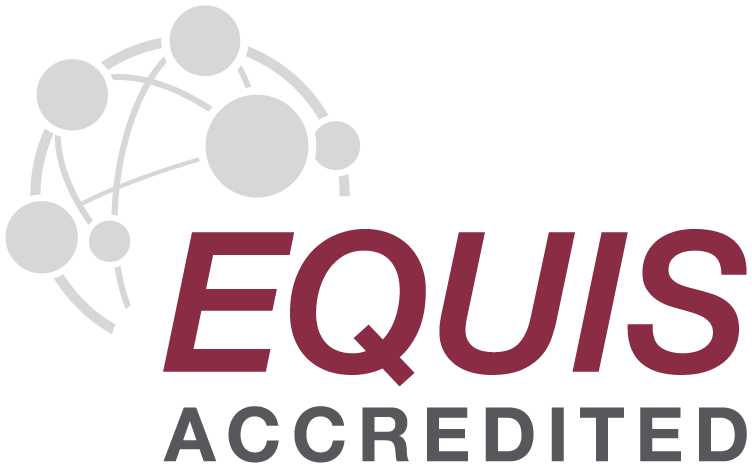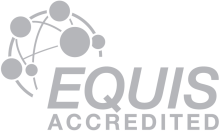dSEA ERS Strategy
Ethics, Responsibility and Sustainability (ERS) are integral to dSEA’s mission and its strategy as encapsulated in the dSEA Strategic Plan 2022-24. Goal 4 of the Strategic Plan explicitly identifies ERS engagement as a key objective with measurable metrics. This is indicative of a long-term vision under which dSEA is committed to promoting an ethical and responsible department that cherishes gender diversity, inclusivity, and sustainability.
dSEA is committed to the recognition and respect of individual rights, as well as the acceptance of obligations and responsibilities. Additionally, dSEA abides by the codes of conduct outlined by UNIPD and notifies UNIPD central offices in the event of a violation of these codes.
The top management of dSEA set the tone for an organizational culture that values ethical climate and develops the character for values and norms shared by the institution. They oversee compliance mechanisms that promote ethical behaviour among all stakeholders. dSEA faculty, staff and students within their sphere of activity are obligated to respect, protect and promote the following values of UNIPD:
- the equal dignity of all persons
- refusal of all forms of discrimination and enhancing individual merit, skills and competences
- freedom and fundamental rights, in particular
- the right to know responsibility and recognition to fulfil its duties to the community
- uphold honesty, integrity and professionalism
- freedom of science and research
- fairness, impartiality, transparency and loyal cooperation
The nascent committee on ERS is tasked with coordinating activities that build and strengthen the overall consistency of dSEA in its adherence to UNIPD and EQUIS Ethical guidelines and standards. The committee initiates a series of actions through a broader ethical lens with a focus on designing transversal initiatives - establishing a systematic perspective to integrate processes across multiple stakeholders, i.e. faculty, staff and students.
ETHICS:
dSEA members comply with the UNIPD Code of Ethics. The Code establishes the general principles to which every member of the Department must adhere. dSEA shares UNIPD policies such as guidelines for reporting and reviewing actual and potential conflicts of interest; prevention of sexual and moral harassment; honesty and integrity standards in teaching and research; commitment to equal treatment and prohibition of all forms of discrimination; maintenance and documentation of all financial statements and records in accordance with national and UNIPD financial principles; adherence to national and UNIPD anti-fraud and anti-corruption policies; and a commitment to equal treatment and prohibition of all forms of discrimination.
RESPONSIBILITY:
dSEA supports UNIPD’s policies on ethical values that address equal opportunity, worker well-being, and the elimination of all types of discrimination. The CUG Committee (Guarantee Committee) and UNIPD Guarantee Bodies intervene in relation to issues of equality, wellness promotion, and good acts. The Committee serves as a consultation and verification body that “guarantees” equal opportunity, employee well-being, and nondiscrimination in the workplace as a proactive organization mandated by law.
Equal opportunity is one of the goals of the UNIPD Gender Equality Plan, which also works to promote gender parity. Members of the dSEA follow the Gender Equality Plan’s diversity and inclusion policies, promoting a pleasant work environment and interpersonal relationships based on equality and reciprocal justice and avoiding and combating discrimination, sexual and other harassment, and bullying.
dSEA recently launched its organizational climate survey targeting the department’s faculty, PhD students and administrative and technical staff on issues of ERS at dSEA. The outcome of the survey will be used to direct the activities and investments of the Department’s resources.
dSEA employees should display acceptable behaviors toward one another and the organization as a whole, according to the Code of Discipline for non-teaching staff (Code of Discipline PTA). Each employee must adhere to societal standards, regulations, and obligations enshrined in the Code of Conduct, which becomes a formal agreement between dSEA and the employee.
SUSTAINABILITY:
dSEA shares the commitment made by UNIPD in the Charter of Sustainability Commitments, to engage in resource management that is responsible in terms of the economy and environmental impact, reducing waste and encouraging consumption reduction. The key actions include: promoting green purchases; encouraging differentiated waste collection; reducing the consumption of disposable plastic; reducing the consumption of paper and toner; recycling and reusing products and their components. Members of dSEA have access to a variety of initiatives promoted by UNIPD to help reduce their carbon footprint.
DSEA ERS SPECIFIC BEST PRACTICES:
- dSEA provides schools in need with obsolete computers and monitors that are no longer in use but are still appropriate for educational purposes. For this year, the dSEA donated bookshelves from the old library;
- dSEA disposes of batteries at authorized collection locations; dSEA also collected all plastic caps in order to raise funds for the City of Hope project;
- Along with paper for photocopiers, a portion of the purchase is recycled paper, and every effort is made to recycle used paper;
- Since 2016, dSEA has leased five Ricoh recycled photocopiers for a total of €47k for the two offices in Via del Santo, promoting circular economy;
- dSEA purchases plastic-free glasses and water bottles for the conferences and seminars it organizes. Suppliers must use materials that are not made of plastic;
- dSEA replaced neon lights in the corridors with low-energy LED lights and will soon do so in its offices;
- The Department has hired a firm that specializes in e-waste disposal to separate it into hazardous (laptops, monitors, etc.) and non-hazardous (computers, printers, etc.) categories. Approximately 429 inventory items have been disposed of since 2016;
- dSEA embraced a green aesthetic by incorporating ornamental plants throughout the rooms and incorporating a mimosa in the internal garden;
- For the academic year 2021-2022, dSEA offered one scholarship to an Afghan international student who was studying for a master’s degree in “International Business for Small and Medium-Sized Enterprises”. Saleha Hassas has been awarded an annual scholarship of € 9.6k;
- dSEA Personnel are advised to close the windows daily to prevent heat loss;
- dSEA recommends to its employees not to turn on lights whenever possible and instead make use of the natural light that comes in through the windows;
- dSEA employees are urged to print only the documents they need in order to encourage document dematerialization;
- In 2022 ERS Committee introduced a vademecum on dSEA workplace conditions.
dSEA Gender Balance – Programs
This dataset provides information on the gender balance across programs offered at dSEA.
ERS Faculty Engagement
This dataset tracks faculty involvement in ERS-related activities, enabling the institution to identify areas for increased engagement and develop strategies for promoting faculty involvement in ERS.
ERS Student Credit Mapping
This dataset maps ERS-related credits across programs, facilitating evaluation of ERS integration in curricula, identification of areas needing emphasis, and monitoring progress towards ERS goals.
ERS SDG Mapping
This dataset maps the Sustainable Development Goals covered by programs, assessing their contribution, highlighting areas for attention, and tracking progress towards ERS goals.
ERS Research Projects
This dataset tracks research projects related to ERS, allowing evaluation of scope and quality, identification of research needs, and monitoring progress towards ERS goals.







